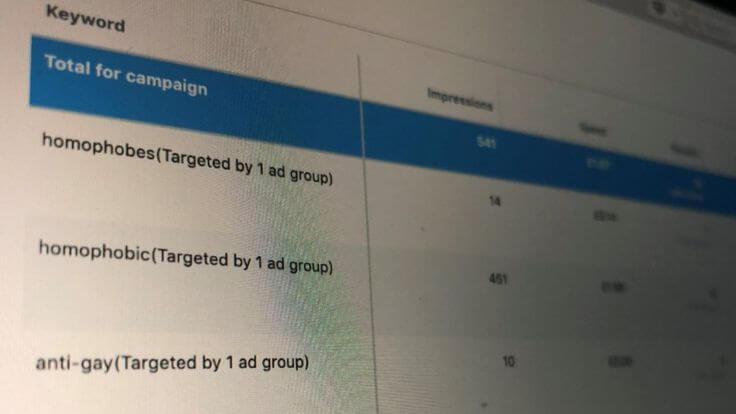In brief: A BBC experiment found that advertisers could use certain keywords to serve ads on Twitter to groups of people that show interest in sensitive topics that have to do with hate groups and discriminatory terms. Twitter says it has fixed the issue, and promises to continue enforcing its ad policies in the future, "including inappropriate content targeting minors."
Between all the security issues that expose your personal data, Twitter has an even bigger fight to clean its platform of hate speech and trolls.
Earlier today, Twitter apologized after the BBC found it's possible to use the company's ad targeting tools in ways that break the rules for what content is acceptable on the platform. The social giant also scrambled to fix the issue, and a spokesperson explained that it was the result of not properly applying existing policies that are supposed to prevent such an abuse.
The first of the BBC experiments was set up to target Twitter users based on specific keywords like "white supremacists," "anti-gay," "transphobic," and "neo-Nazi." Twitter policies normally prohibit targeting sensitive categories like these, or anything that has to do with religious affiliation, racial and ethnic origins, medical issues or sex life.

The news organization ran the ad for approximately two hours for a total cost of about $5, which resulted in 37 people seeing and two people clicking on the ad. The second experiment targeted users between the ages of 13 and 24 with keywords like "bulimia" and "anorexia," which was seen by 255 people and clicked on by 14 before being taken down by the BBC.
Interestingly, Twitter's tools showed that using the term "neo-Nazi" had the potential to target an audience of around 67,000 to 81,000 people in the UK alone. Using "islamophobia" in an ad campaign showed an even higher potential of 93,000 to 114,000 people. But more importantly, it shows that Twitter collects a lot of data on its users, which could be abused by advertisers that target people with extremist and otherwise questionable views.
Twitter says it has a list of "sensitive words" that is constantly being updated to prevent advertisers from using them to target users based on those terms, and that this was an instance where it was not enough to prevent an abuse. The social giant has a complete ban on political ads, so at least there's no way to abuse those.
